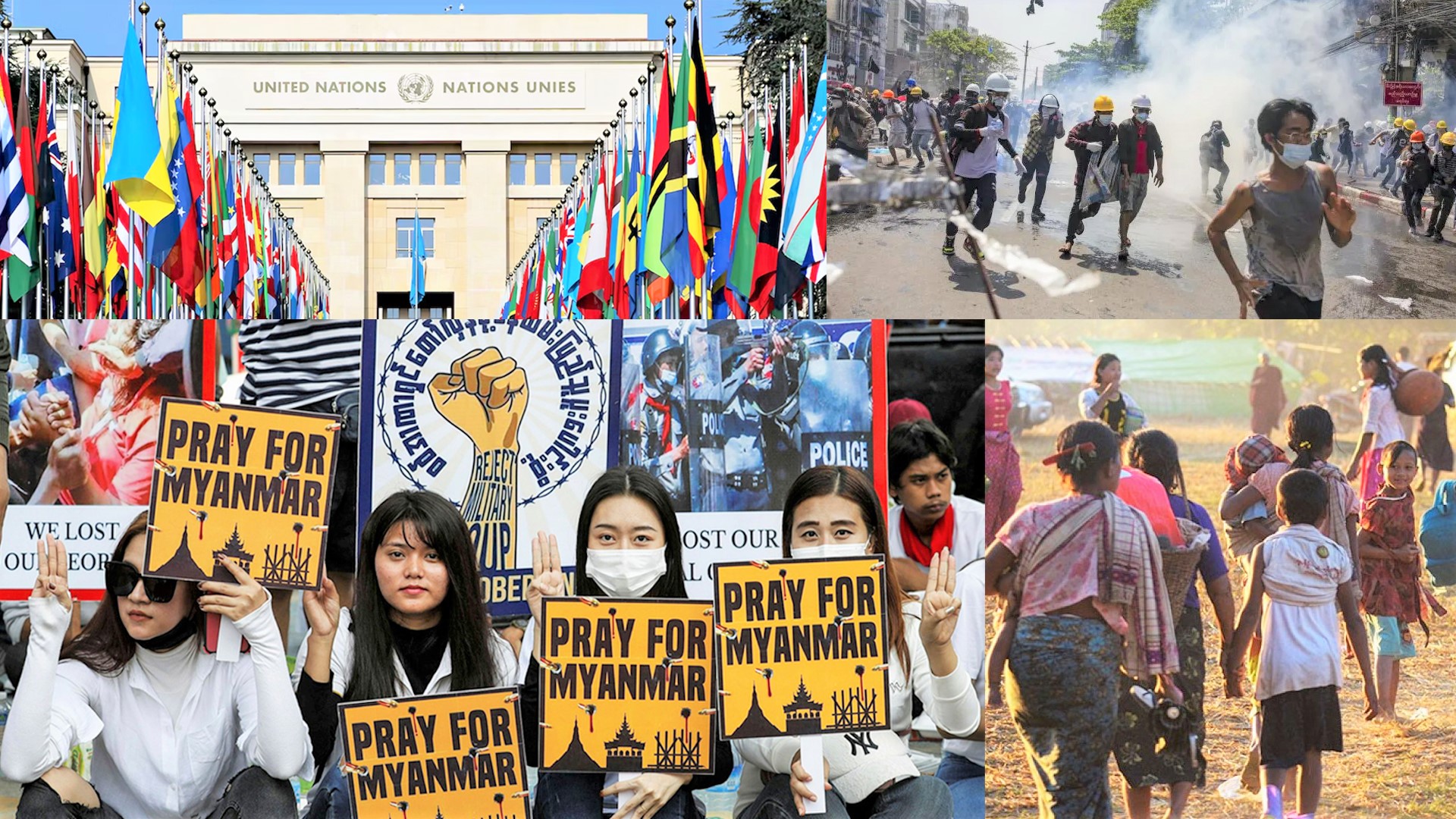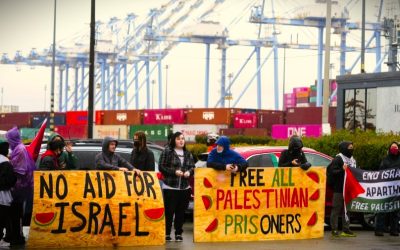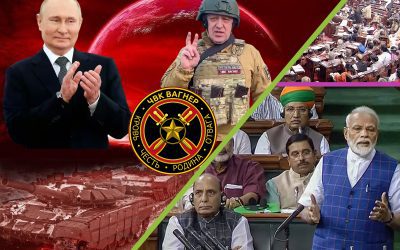A Cry for Justice Myanmar, once renowned for its breathtaking landscapes and rich cultural heritage, is currently mired in a severe crisis following the military coup in 2021. The country’s deteriorating humanitarian and human rights situation has recently been strongly condemned by the United Nations (UN). The decision military junta’s hindrance of life-saving guide has exacerbated the enduring individuals, prompting a frantic sob for equity and global mediation. In this blog, we will investigate what is happening in Myanmar, the outcomes of the tactical’s activities, and the critical requirement for helpful guide and worldwide help.
The Tactical’s Methodology: A Critical Outcome
Following the tactical upset, the non military personnel government drove by Aung San Suu Kyi was ousted, prompting far reaching agitation and obstruction. Violence and destruction have become the norm as a result of the military regime’s crackdown on opposition forces. The UN’s basic liberties office representative, Ravina Shamdasani, features that the tactical’s essential center lies in encouraging its own plan, ignoring the government assistance of individuals.
The overall humanitarian situation in Myanmar has reached alarming levels, and the military’s deliberate obstruction of life-saving aid has exacerbated the situation. Shamdasani underscores that the military sees help suppliers as foes instead of facilitators of help to the weak regular citizen populace. This off track approach propagates enduring and escalates the generally desperate emergency. Specifically, the forswearing of help following Twister Mocha in May has caused extra torment and hopelessness.
Gross Violations of International Humanitarian Law It is a grave violation of international human rights law and humanitarian law to deliberately obstruct or deny humanitarian assistance. Volker Turk, the UN’s head of human rights, has written a report about the situation in Myanmar that focuses on the numerous violations of human rights that the military junta has committed. Turk is booked to introduce this report to the Basic liberties Gathering, asking unequivocal activity to address the grave infringement.
The Desolates of the Tactical Junta
The tactical junta’s activities have brought about the deficiency of thousands of non military personnel lives and wounds. They have efficiently annihilated essential foundation and products important for endurance, including food, asylum, and clinical focuses. Internal displacement of approximately 1.5 million people has resulted, and an estimated 60,000 civilian structures have been destroyed or burned. The magnitude of the crisis and the urgent need for international assistance are exemplified by these devastating statistics.
A Cry for Justice More than 17.6 million people, or about a third of the country’s population, are in dire need of aid from the outside world. At least 3,452 people have died as a result of the brutal actions taken by the military, and thousands more have been arrested, found guilty without due process, and given the death penalty. The military junta’s atrocities are brought to light in Volker Turk’s report, which highlights the urgent need for accountability and justice.
The Next Steps: Critical Global Intercession
The UN’s statement of the disturbing circumstance in Myanmar fills in as a reminder to the global local area. To safeguard the rights of the people of Myanmar and provide essential humanitarian assistance, the ongoing crisis necessitates immediate and comprehensive action. Countries all over the world must diplomatically press the military junta to restore civilian rule, end human rights abuses, and allow aid organizations unrestricted access.
Deteriorating Human Rights Situation According to a report released by the UN Office of the High Commissioner for Human Rights (OHCHR), Myanmar’s human rights situation has reached “alarming levels.” The report emphasizes the need for immediate and concrete actions to fulfill the people’s fundamental rights and meet their essential needs.
Obstruction of Aid to the Needy:
The junta has actively opposed humanitarian workers ever since the military coup in February 2021, restricting their access and preventing the delivery of life-saving aid. This obstruction has exacerbated the crisis by seriously affecting Myanmar’s health care system.
Effect of Typhoon Mocha
In May, Twister Mocha struck the locale, leaving an expected 1.6 million regular folks needing help. However, the junta’s refusal to grant aid organizations access has made relief efforts even more difficult. Due to this restriction on access, the United Nations has expressed concern about the increased likelihood of food insecurity and water-borne diseases.
Breach of International Law The junta’s restrictions on humanitarian aid may violate international law, as the report points out. Parties to a conflict must permit and facilitate the free movement of impartial humanitarian aid, as stated in Rule 55 of the Customary International Humanitarian Law Database maintained by the International Committee of the Red Cross. In any case, the junta has made moves to control and restrict life-saving philanthropic help.
Assaults on Medical care Framework
The junta has straightforwardly designated the medical care framework, prompting the annihilation of clinical supplies, including the consuming of ambulances and emergency clinics. Arrests have also been made against patients seeking treatment. The healthcare system’s ability to meet the needs of the population has been severely compromised by these deliberate actions.
Annihilating Results:
Because of the tactical’s activities, an expected 1.5 million individuals have been inside dislodged, and roughly 60,000 non military personnel structures have been singed or obliterated. Since February 2021, the report records that no less than 3,452 people have lost their lives on account of the military and its partners. There have been thousands of arrests, 5,839 people convicted without due process, and 154 people have been given the death penalty.
Calls for Activity
The distribution of this report follows ongoing calls by UN master Tom Andrews for another system and activity by the Relationship of Southeast Asian Countries (ASEAN) to address the emergency in Myanmar. The worldwide local area should answer critically to end the continuous denials of basic freedoms and carry equity to individuals of Myanmar.
Impact of the Coup in 2021: The military’s coup that removed democratically elected civilian leader Aung San Suu Kyi set off the crisis in Myanmar. The country experienced widespread unrest and instability as a result of this political upheaval, which exacerbated the humanitarian and human rights situation. The suffering of the populace has been exacerbated by the military’s prioritization of its own objectives over the requirements of the people.
International Pressure and Financial Sanctions The United States of America has reimposed financial sanctions on Myanmar, focusing on its banks and defense ministry. In order to exert pressure on the military junta to alter its course and uphold human rights, these sanctions are seen as an essential step. The global local area should keep on applying strategic and financial strain on Myanmar to consider the junta responsible for its activities and make conditions for a quiet goal.
Annihilation of Framework:
The tactical junta’s activities have brought about the annihilation of basic framework important for the endurance of the populace. Civilian structures, including medical centers, have reportedly been destroyed or burned, denying thousands of people access to essential services. To address the humanitarian crisis in Myanmar, it is essential to rebuild infrastructure and restore access to healthcare and other basic necessities.
Internal Displacement and Refugees The crisis in Myanmar has displaced a significant number of people. The assessed 1.5 million inside dislodged people (IDPs) are living in shaky circumstances, frequently deficient with regards to admittance to fundamental necessities and confronting progressing dangers to their security. The worldwide local area ought to focus on help for IDPs and work towards tracking down strong answers for their relocation.
Human Rights Violations The UN report focuses on the numerous violations of human rights committed by the military junta and its affiliates. The imposition of the death penalty, arbitrary arrests, and convictions without due process are all examples of these violations. Not only do such serious violations violate the rights of individuals, but they also undermine the rule of law and the tenets of justice.
Critical Requirement for Philanthropic Help
The critical philanthropic circumstance in Myanmar calls for dire and thorough helpful help. With over 17.6 million individuals, or 33% of the populace, requiring some type of help, there is a basic requirement for food, medical care, cover, and other fundamental administrations. The global local area ought to prepare assets and backing neighborhood and worldwide compassionate associations to guarantee the necessities of the impacted populace are met.
International Legal Framework According to the UN report, intentional obstruction or denial of humanitarian assistance may constitute grave violations of international humanitarian law and human rights law. These activities should be unequivocally censured, and endeavors ought to be made to consider those mindful responsible for their activities. In order to guarantee justice, protection, and respect for human rights in Myanmar, upholding the principles of international law is essential.
Response and Solidarity from the International Community The international community must continue to support the people of Myanmar and raise their voices. Through diplomatic means, advocacy, and the provision of humanitarian aid, individuals, organizations, and governments ought to support efforts to address the crisis. In Myanmar, meaningful change and the restoration of human rights can be achieved through collective action and a unified response.
Conclusion:
The humanitarian and human rights situation in Myanmar is depicted in a troubling light by the United Nations report and the mounting evidence. The actions of the military junta have thrown the nation into chaos, causing widespread suffering, displacement, and death. Millions of people are in desperate need of assistance as a result of the crisis’s escalation because the interests of the military were prioritized over the needs of the people.
The population’s difficulties are made even more difficult by the deliberate denial of humanitarian aid and the destruction of vital infrastructure. Arbitrary arrests, convictions without due process, and even the imposition of the death penalty have resulted from the junta’s disregard for international human rights law and the rule of law. It is impossible for such grave violations to go unnoticed or ignored.
The actions must be condemned collectively by the international community, who must exert diplomatic and financial pressure on the military junta to alter course. The United States’ imposition of financial sanctions is a positive step, but more coordinated efforts are required to hold the perpetrators accountable and bring about justice for the victims.
In addition, comprehensive humanitarian assistance is essential to meet the immediate requirements of the affected population. Food, healthcare, shelter, and other essential services must be restored, and the destroyed infrastructure must be rebuilt. In order to alleviate the suffering of the people in Myanmar, the international community, which includes governments, organizations, and private individuals, ought to act.
In addition, the crisis in Myanmar has wider repercussions for the stability of the region and the potential to spread to neighboring nations. Accordingly, it is pivotal for local entertainers and global bodies, for example, ASEAN to assume a functioning part in settling the emergency and forestalling further destabilization.
In conclusion, the situation in Myanmar necessitates immediate action, solidarity, and an unwavering commitment to upholding the principles of international law, justice, and human rights. The international community can work toward a peaceful resolution by uniting, restoring the rights, safety, and dignity of Myanmar’s people.








0 Comments